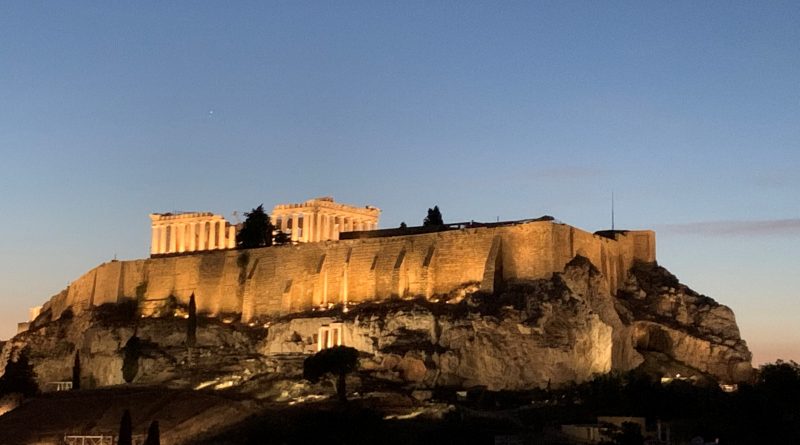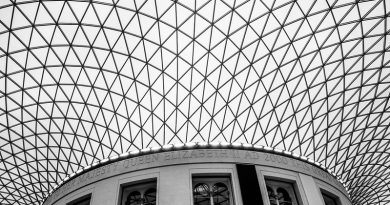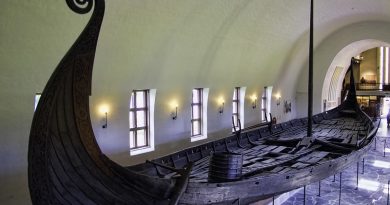Top Ten Athens
One of the oldest cities in the world, Athens is also one of the most culturally and historically rich. The birthplace of democracy and by extension Western Civilization, Athen’s evolution has been critical to the culture of the world around it, and it remains a more vital destination than ever. In addition to the unparalleled wealth of ancient treasures it still houses, the city has emerged as one of Europe’s premier modern cultural destinations.
Acropolis
Without a doubt one of the most spectacular sights in the world, the Acropolis is Athens’ ancient citadel, located above the modern-day city. Although it contains a plethora of ancient ruins, the crowning achievement of these is undoubtedly the Parthenon. Dedicated to the city’s namesake Athena, the Parthenon dates back to the 5th Century, the height of the Athenian Empire’s power. Considered to be the definitive symbol of Classical Greece, the Parthenon functioned as the hub of Athenian political life as a temple and as the city’s treasury. Following the collapse of Classical Greece, the Parthenon was briefly repurposed as a Christian Church before serving as a mosque following Ottoman conquest in the 15th Century. In the centuries since, the Parthenon has sustained much damage from warfare and plundering, but remains Athens’ most recognisable symbol.
Acropolis Museum
The city’s premier archaeological museum, the Acropolis Museum, as its name suggests, houses all the artefacts plundered from the citadel. The immense collection contains over 4000 artefacts, mainly from the Bronze Age, the Roman Empire and the Byzantine Empire. Set within an impressive modern building, the Acropolis Museum is one of the world’s premier destinations for antiquities, and gives an insight into Athens’ extensive history over the course of millennia.
National Gardens
Athens’ most central and popular public park, the National Garden is adjacent to Greece’s Parliamentary building and provides a serene escape from the often frantic city. Home to over 500 species of plants from all over the world, the park is one of the most beautiful spots in the city and worth a visit for those in need of a relaxing break from the business of city life.
Byzantine and Christian Museum
Another of Athens’ powerhouse museums, the Byzantine and Christian Museum offers a more specialised experience than the vast Acropolis Museum. Specialising in artefacts ranging from the 3rd Century through the end of the Medieval period, the museum features over 25,000 relics from this rich period of history. It is considered to be one of the premier museums specialising in Byzantine Art. An essential destination for those with an interest in Byzantine history as well as the general history of Athens.
Museum of Islamic Art
While many associate Athens with the history of the Ancient World and the Byzantine Period, people often forget the cultural impact of centuries of Ottoman rule upon the city, and Greece in general. There are few better destinations to learn about this than the Museum of Islamic Art, or the Benaki Museum, which houses the most extensive collection of Islamic art in the country. The museum draws attention to the extensive cultural exchange between Greece and the Middle East, from ancient times up until the end of the Ottoman Empire.
National Museum of Contemporary Art, Athens
In recent years, Athens has emerged as an increasingly prominent centre for contemporary art. There are a plethora of top-tier small contemporary art galleries dotted throughout the city, but one should not miss the city’s national gallery. The top centre for contemporary art in the country, the National Museum of Contemporary Art, Athens, or EMST is one of the most forward-thinking contemporary art galleries in the world and one of Greece’s premier cultural centres. Balancing both Greek and international artists, the museum is particularly well-known for its extensive collection of video art. While many visit Athens for its ancient arts and treasures, it is not worth missing out on its more contemporary riches.
Agora-Athens Central Market
Athens is a city highly regarded for its bazaar culture, and Agora-Athens Central Market is the most famous and popular of many. A bustling hub of urban activity, the market is a great place to sample authentic Greek cuisine from all corners of the country for a cheap price. The market is both a top cultural experience and a great destination to save money on top-tier Greek food.
Temple of Poseidon
A short drive away from the city centre on Cape Sounion is one of Ancient Athens’ most enduring monuments-the Temple of Poseidon. Dating back to the mid-5th Century, the remnants of a once-great temple are amongst the best-known relics of the Ancient World. One of the most impressive sights in Greece and certainly worth visiting, especially those who shy away from excessive crowds at the more well-known Parthenon.
Mount Lycabettus
A hill reaching a height of 300 metres, Mount Lycabettus is a popular tourist destination, mainly for its unparalleled vantage point of the city below. Accessible by a funicular railway system, the hill is also home to a number of other sites, including a large amphitheatre as well as a prominent 19th Century Church-the Chapel of St. George. Also popular amongst hikers, Mount Lycabettus is a must-see location which caters to a number of different tastes.
Church of the Holy Apostles
One of the best-known sites in the Ancient Agora of Athens, the Church of the Holy Apostles dates back to the end of the 10th Century and one of the oldest surviving relics of this period. The first major church established during the Byzantine period, the Church is one of the most culturally significant Christian sites in the country.




